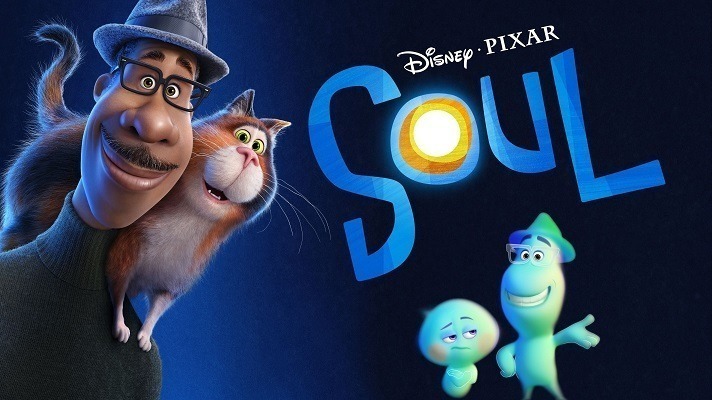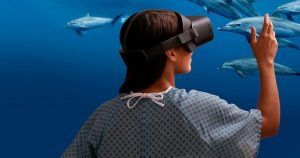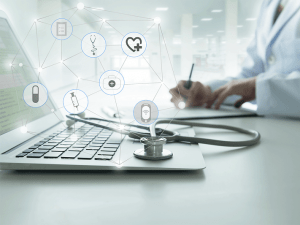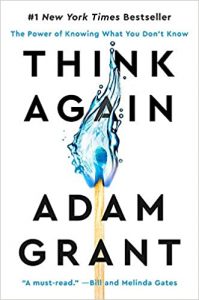On Awe, Wonder, Biofeedback, CBSM, Virtual Reality, Privacy, Being Wrong, and more
 Welcome to a new edition of SharpBrains’ e‑newsletter, this time featuring eleven timely resources and research findings for lifelong brain health and mental well-being.
Welcome to a new edition of SharpBrains’ e‑newsletter, this time featuring eleven timely resources and research findings for lifelong brain health and mental well-being.
#1. “Awe is the feeling we experience when encountering vast things that we don’t understand. Around the world and in culturally varying ways, studies show, we experience awe in response to others’ kindness and courage, nature, music, religious or spiritual practice, the visual and dramatic arts, and epiphany … It leads us to share, collaborate, and wonder. In experiences of awe, people often speak as if they have found their soul.”
Sometimes it IS awesome to learn how the sausage was made: How Pixar’s “Soul” met the Science of Awe
#2. Here are six suggestions to incorporate awe into daily routines and improve mental well-being, based on the new book Awestruck: Linger, Slow down, Appreciate your senses, Unplug, Awe walks, Awe journaling.
#3. Speaking of Awe and Wonder, why not take a few minutes to appreciate our most precious natural resource via these
five brain teasers?
 A few wonderful news for many with unmet mental/ brain health needs:
A few wonderful news for many with unmet mental/ brain health needs:
#4. Prediction: In just a few years we’ll look back at today and wonder, why didn’t we all, of all ages, access biofeedback tools and games designed to measure and retrain heart rate variability? Growing research supports Heart Rate Variability (HRV) biofeedback training to lower stress and anxiety, increase sports performance
#5. Blue Note Therapeutics raises $26M to help treat cancer-related distress via cognitive behavioral stress management (CBSM): “Nearly half of all cancer patients experience psychosocial distress, anxiety, or depression. If left untreated, these feelings can lower a cancer survivors’ quality of life and may negatively affect survival.”
 #6. AppliedVR raises $29M to help make virtual reality the standard of care for treating chronic pain: “Chronic pain is one of the most common medical conditions in the world, yet it still is incredibly debilitating to patients, costly to the system and complex to treat. While our mission has always been to demonstrate that VR can be a powerful analgesic in any setting, the COVID-19 pandemic has created a surge in demand for digital medicines like VR that can be delivered safely to patients in their own homes” — Matthew Stoudt, co-founder and CEO of AppliedVR
#6. AppliedVR raises $29M to help make virtual reality the standard of care for treating chronic pain: “Chronic pain is one of the most common medical conditions in the world, yet it still is incredibly debilitating to patients, costly to the system and complex to treat. While our mission has always been to demonstrate that VR can be a powerful analgesic in any setting, the COVID-19 pandemic has created a surge in demand for digital medicines like VR that can be delivered safely to patients in their own homes” — Matthew Stoudt, co-founder and CEO of AppliedVR
#7. Happify Health raises $73M to deepen partnerships with pharmaceutical companies and insurance payers: “We are also working with five leading pharmaceutical partners on digital therapeutic solutions and four out of the five national payers to help support their members’ mental health and chronic illness needs. We look forward to reaching an even bigger audience with the support of our new partners.” — Tomer Ben-Kiki, cofounder and CEO of Happify
This growing number and range of innovative digital health tools demands more and better research, smarter regulations, and more transparent privacy policies:
#8. Consumer Reports finds unclear, questionable privacy practices and policies among popular mental health apps. “In general, these mental health services acted like many other apps you might download. For instance, we spotted apps sharing unique IDs associated with individual smartphones that tech companies often use to track what people do across lots of apps. The information can be combined with other data for targeted advertising. Many apps do that, but should mental health apps act the same way? At a minimum, Consumer Reports’ privacy experts think, users should be given a clearer explanation of what’s going on.”
 #9. Tip for digital health start-ups: To navigate regulatory gray areas, “engage early and engage often” with the FDA. Important advice as “…a growing number of companies are finding themselves in a gray area of enforcement discretion, a term the FDA uses for lower-risk products that meet the definition of a medical device, but do not require regulatory submission, review and authorization before heading to market”
#9. Tip for digital health start-ups: To navigate regulatory gray areas, “engage early and engage often” with the FDA. Important advice as “…a growing number of companies are finding themselves in a gray area of enforcement discretion, a term the FDA uses for lower-risk products that meet the definition of a medical device, but do not require regulatory submission, review and authorization before heading to market”
#10. Innovation in COVID times: Otsuka and Click Therapeutics announce fully virtual clinical trial, leveraging Verily’s Project Baseline: “We do believe that the treatment landscape in mental disease is going to evolve in a way where obviously pharmacotherapy will always play a role, but we do think digital therapeutics can play an additional role, and to some extent, substitute as well as augment pharmacological intervention.” — Otsuka Chief Medical Officer Christoph Koenen
 #11. Finally, much of the opportunity around applied neuroscience and neuroplasticity relies not on tools but on mindsets, as discussed in this fantastic interview (To prevent “cognitive entrenchment,” think like a scientist and be wrong often):
#11. Finally, much of the opportunity around applied neuroscience and neuroplasticity relies not on tools but on mindsets, as discussed in this fantastic interview (To prevent “cognitive entrenchment,” think like a scientist and be wrong often):
“JS: You write that being wrong is tied to a more joyful life. Why is that?
AG: I had noticed Danny Kahneman [the Nobel prize–winning behavioral economist] just lights up with joy when he finds out that one of his hypotheses is false … In some ways, the joy of being wrong is the freedom to keep learning. If you can embrace the joy of being wrong, then you get to anchor your identity more in being someone who’s eager to discover new things, than someone who already knows everything or is expected to know everything.”
Wishing you a healthy and stimulating month of April,
The SharpBrains Team


